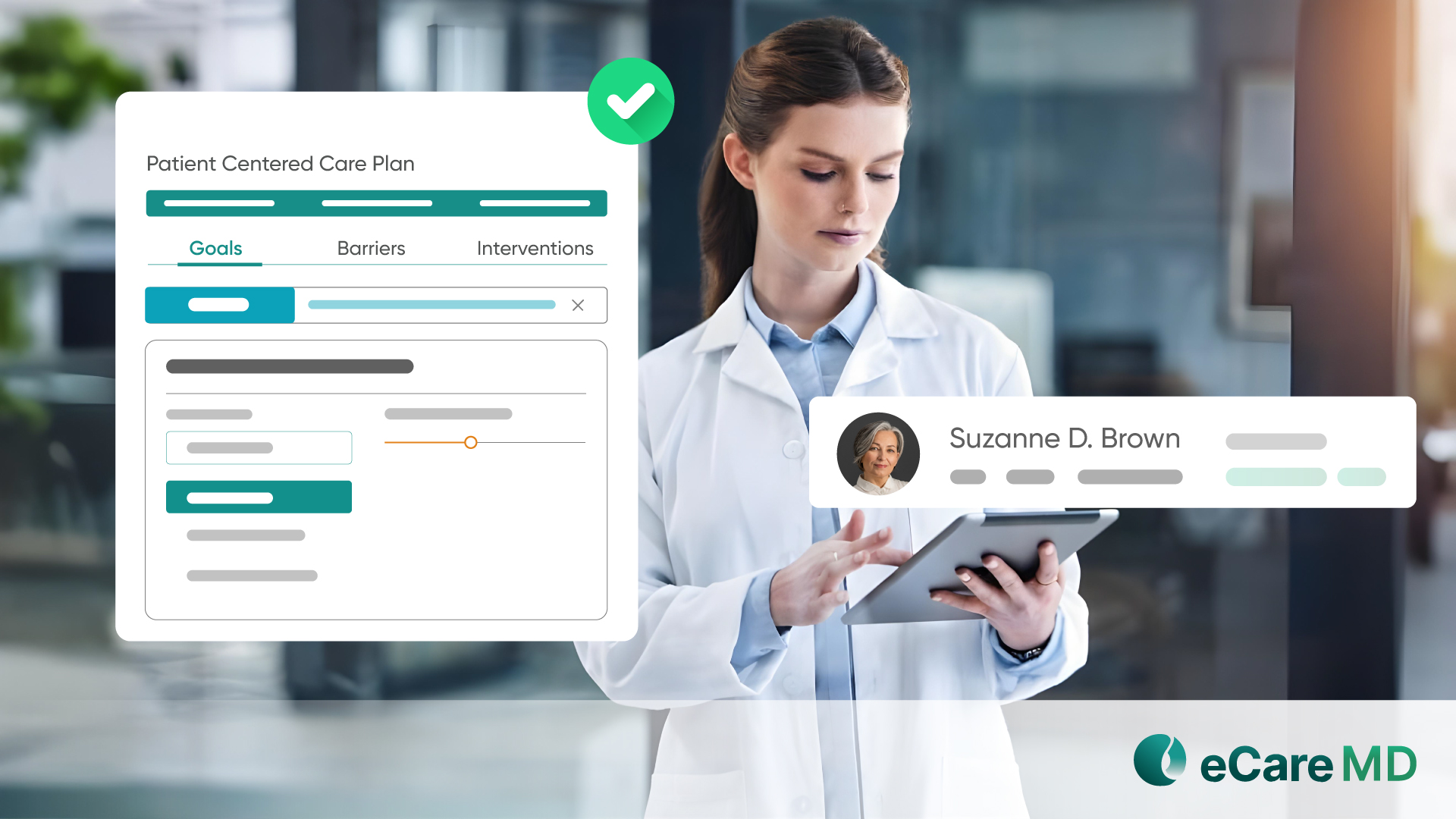Client Overview:
The client has 12 internal medicine practices in Texas, USA, handling around 2500-3000 patients with multiple chronic conditions, including diabetes, hypertension, COPD, and heart failure. Their goal is to implement Medicare's Principal Care Management (PCM) program to provide coordinated care while improving health outcomes and reducing healthcare costs.
Business Challenges:
While managing multiple provider groups, the client's provider team has faced several clinical problems that impact patient care quality. Here are some of the key clinical challenges:
1. Fragmented Care Coordination Across Multiple Conditions:
While patients have multiple chronic conditions, it is difficult for care team members to manage coordination within a team on patients' health issues. This causes the opportunity for a single approach to encounter patients' conditions, leading to repetitive interventions and mismanagement. It is impacting the client's patient population to have multiple emergency hospital visits.
2. Insufficient Risk Strategies and Early Interventions:
The provider groups lack a reliable system to identify high-risk patients as early, causing care team members to respond after the patient's health worsens. Without real-time monitoring and pre-alert tools, many critical situations occurred without any emergency plan or getting notified on time to the care team. This results in the client's business having more ongoing readmissions between patients with Diabetes and heart failure, where constant care is needed.
3. Inconsistent Medication Management and Adherence Monitoring:
Without an integrated system, tracking patients' health journey and their adherence to medication with multiple chronic conditions was difficult and time-consuming. Care staff have to review medications manually, check the required medications, and follow up with patients individually. This manual process led to inconsistency and poor quality in care management, with 34% of the patient showing unacceptable results during their checkups.

4. Limited patient engagement between clinical encounters:
The provider team has faced challenges in keeping patients engaged due to the absence of structured communication and education tools. This is resulting in many patients feeling disconnected from their care team, leading to poor self-management.
Solution Provided:
Recognizing the urgent need for comprehensive clinical care coordination, the client had a meeting with Medarch Inc. to implement care coordination software focused on principal care management. With a couple of demo training sessions on "eCareMD" software by the meadrch's Business Analyst, the client has onboarded their business into eCareMD. All the essential solutions were implemented as below:
Solution Highlighted:
1. Integrated Care Plan Management System:
The eCareMD platform has a unified care planning module that enables the creation of comprehensive care plans across multiple chronic conditions. It automatically identifies the systematic pre-defined care plan from patients' conditions and allows providers to choose/add the right interventions and medication plan. By managing this automated care plan workflow, the provider team can verify the patient's correct outcome with respect to PCM billing in one place and deliver more comprehensive patient-centered care.

2. AI-Powered Risk Analysis:
eCareMD provides an advanced risk analysis system to analyze patient data such as vitals, lab results, and medication adherence, from which the patient's clinical data is shown in visual form, such as a table and a graph. From the patient's clinical data, the automated alert is generated in real time for high-risk patients. The care team receives the respective alert in order to avoid risk, allowing them to interact early, allocate possible resources, and prevent unnecessary hospitalizations.
3. Comprehensive Medication Management Module:
eCareMD offers a smart medication tracking system that helps the care team keep an eye on whether patients are taking the right medication on time as prescribed. It gathers information from patients' daily routines, updates, and regular check-ins to identify missing adherence. The system can also suggest better medication options and send alerts if a patient's routine needs attention. The Physician can review the progress of the patient's health outcome in each necessary situation to keep patients safe.
4. Enhanced patient Engagement and Communication Tools:
eCareMD makes it easier for patient to stay connected with their care team members. It offers secure messaging, symptom records, educational material, and virtual follow-ups. Patients can share their health feedback, track their vitals, and ask questions at any time. The platform also sends helpful reminders and provides easy-to-understand information based on each patient's conditions. Making it easier for them to stay involved and take charge of their health.
Value Added:
1. Reduced Hospital Readmissions by 31% Within 6 Months:
By using eCareMD's automated workflows and early risk detection tools, the practice significantly reduced unnecessary hospital visits. Within six months, the readmission rates for PCM patients dropped by 31% with the biggest improvement seen in patients with diabetes and heart failure. This success directly affected better day-to-day monitoring, timely follow-ups, and faster clinical response to critical situations.
2. Improved Clinical Outcomes Across All Chronic Conditions:
With consistent care coordination through eCareMD, the practice delivers quality improvements in patient health. Diabetic patients have controlled sugar levels, and hypertensive patients experienced 28% better blood pressure control. Managing multiple conditions in one connected system helped the care team treat patients more effectively.
3. Enhanced Medication Adherence and Safety:
eCareMD's Medication management tools helped more patients take medications correctly, leading to a 45% improvement in adherence across all chronic conditions. Built-in alert generation reduced harmful side effects by 38% and improved coordination with the patient in mediation adaptability. As a result, clinical staff felt more positive about managing complex medication routines safely.
4. Increased Patient Satisfaction and Engagement:
Patient satisfaction increased by 34% due to better communication, timely follow-up, and improved Patient health. Patients felt more supportive and involved in their care journey, with 98% of PCM-enrolled patients expressing high satisfaction with the coordination they received. Regular follow-ups also increased, showing that patients were more committed and engaged in managing their health.

